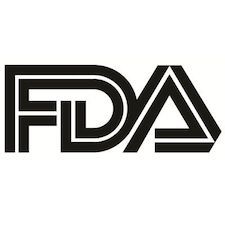Efanesoctocog Alfa Receives FDA Breakthrough Therapy Designation for Hemophilia A
Efanescotocog alfa is the first factor VIII therapy to be granted Breakthrough Therapy designation by the FDA.

Sanofi and Sobi collaborated on the development and commercializtion of efanesoctocog alfa (BIVV001) and announced today that the drug received Breakthrough Therapy designation from the US Food and Drug Administration (FDA) for treating hemophilia A.
Efanesoctocog alfa is the first factor VIII therapy to be granted Breakthrough Therapy designation by the FDA. The novel, investigational factor VIII therapy was designed to be a once-weekly prophylactic treatment to normalize factor activity levels in patients for the majority of a week.
The Breakthrough therapy designation serves to expedite the development and review process for certain drugs in the US. Because hemophilia A is a rare, life-threatening bleeding disorder, the therapy was a good candidate. In order to attain the designation though, prelimenary clinical evidence demonstrating improvement on significant endpoints needs to be compared with available therapies.
The XTEND-1 Phase 3 Study
Data from the XTEND-1 phase 3 study supported the designation with clinically meaningful preventation of bleeds and superiority in prevention of bleeding episodes compared to prior prophylaxis factor treatment.
“The Breakthrough Therapy designation highlights efanesoctocog alfa’s potential to transform treatment for people with hemophilia A by providing higher protection for longer duration," John Reed, MD, PhD
Global Head of Research and Development at Sanofi said in a statement.
"This potential new class of factor VIII therapy represents how we are boldly advancing science to address unmet needs for the hemophilia community," he continued. "We are excited to work with regulatory authorities during the filing and review of this innovative therapy.”
The study showed clinically meaningful prevention of bleeds in patients over a 52-week period meeting the primary endpoint. It also achieved the key secondary endpoint which demonstrated that prevention provided by efanesoctocog alfa was superior to prior prophylactic factor VIII replacement therapy based on an intra-patient comparison.
The treatment was well-tolerated, and inhibitor development to factor VIII was not detected. The most common treatment-emergent adverse events (>5% of patients) were headache, arthralgia, fall, and back pain.
Milestones of Efanesoctocog Alfa
“This designation supports the innovation of efanesoctocog alfa and acknowledges its potential to fulfill an unmet medical need for people living with hemophilia A," Anders Ullman, MD, PhD, Head of Research and Development, Chief Medical Officer, Sobi said. "We are committed to transforming lives for people living with rare diseases, and this is a testament to the medical innovation that science can bring.”
According to Sanofi, these data will be shared at an upcoming medical meeting. Additionally, these data will be the basis of support for submission to FDA mid-way through 2022.
In August 2017 the FDA granted efanesoctocog alfa Orphan Drug designation and then Fast Track designation in February 2021. In June 2019 the treatment was granted Orphan Drug designation by the European Commission. Regulatory submission in the EU will follow availability of data from the ongoing XTEND-Kids pediatric study, expected in 2023.